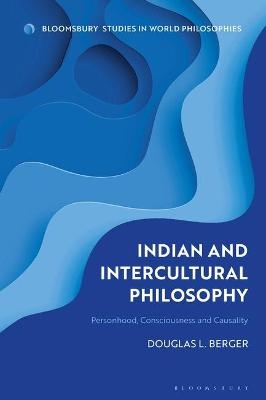
Indian and Intercultural Philosophy
Bloomsbury Academic (Verlag)
978-1-350-17417-7 (ISBN)
Delving into debates between Nyaya and Buddhist philosophers on consciousness and identity, the nature of Sankara’s theory of the self, the precise character of Nagarjuna’s idea of emptiness, and the relationship between awareness and embodiment in the broad spectrum of Indian thought, chapters exhibit Berger’s unusually broad range of expertise. They connect Chinese Confucian and Buddhist texts with classical Indian theories of ethics and consciousness, contrast the ideas of seminal European thinkers like Nietzsche and Derrida from prevailing themes in Buddhism, and shed light on the spiritual and political dimensions of the Mughal prince Dara Shukoh’s immersion into Vedantic thought.
Always approaching the arguments from an intercultural perspective, Berger shows how much relevance and resonance classical Indian thought has with ancient Confucian views of ethics, Chinese Buddhist depictions of consciousness and medieval Mughal conceptions of divinity. The result is a volume celebrating the rigor, vitality and intercultural resonance of India’s rich philosophical heritage.
Douglas L. Berger is Professor of Global and Comparative Philosophy at Leiden University, The Netherlands. He is author of The Veil of Maya: Schopenhauer’s System and Early Indian Thought (2004) and Encounters of Mind: Luminosity and Personhood in Indian and Chinese Thought (2015), and co-editor, with JeeLoo Liu, of Nothingness in Asian Philosophy (2014).
Introduction
PART I: CLASSICAL BRAHMINICAL THOUGHT
1. Shedding Light on the Matter: Sankara’s Dualistic Atman
2. The Abode of Recognition: Memory and the Continuity of Selfhood in Classical Nyaya Thought.
3. How Do We Sense? Buddhist and Nyaya Theories of Imagination
PART II: CLASSICAL BUDDHIST THOUGHT
4. What Kind of a Designation is ‘Emptiness?’ Reconsidering Nagarjuna’s MMK 24:18
5. The Social Meaning of the Middle Way: B.S. Yadav and the Madhyamika Critique of Indian Ontologies of Identity and Difference
6. Justice, Deconstruction and Aporia in Nagarjuna’s Empty Ethics
PART III: INDIAN PHILOSOPHY IN INTERCULTURAL PERSPECTIVES
7. Early Brahminical and Confucian Ideas of Duty
8. Indian and Chinese Conceptions of Luminous Awareness
9. The Unlikely Commentator: The Hermeneutic Reception of Sankara’s Thought in the Interpretive Scholarship of Dara Shukoh
10. The Pivot of Nihilism: How Nietzsche Mis-Evaluates Early Buddhist Thought
Bibliography
Index
| Erscheinungsdatum | 13.08.2021 |
|---|---|
| Reihe/Serie | Bloomsbury Studies in World Philosophies |
| Verlagsort | London |
| Sprache | englisch |
| Maße | 156 x 234 mm |
| Gewicht | 517 g |
| Themenwelt | Geisteswissenschaften ► Philosophie ► Östliche Philosophie |
| Geisteswissenschaften ► Religion / Theologie ► Buddhismus | |
| Geisteswissenschaften ► Religion / Theologie ► Hinduismus | |
| ISBN-10 | 1-350-17417-3 / 1350174173 |
| ISBN-13 | 978-1-350-17417-7 / 9781350174177 |
| Zustand | Neuware |
| Haben Sie eine Frage zum Produkt? |
aus dem Bereich


